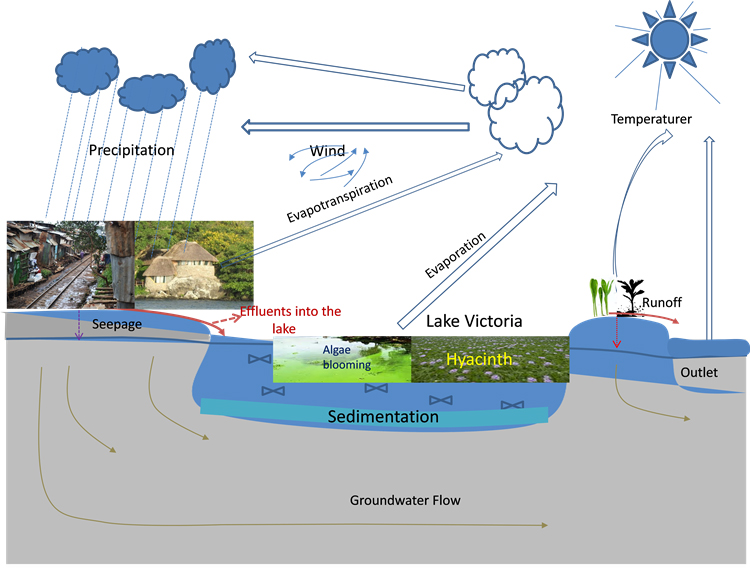Mitigation of Lake Victoria water quality problems
Support tools for mitigation of Lake Victoria water quality problems
Project leader: Prof. Vladimir Cvetkovic
Participants: Seema Paul, David Ddumba Walakira, Prof. Berit Brokking-Balfors, Prof. Jesper Oppelstrup, Prof. Roger Thunvik, Associate Prof. Docent Nandita Singh, Prof. Richard Wait, Dr. John Mango
Funding: Åke och Greta Lissheds stiftelse
Project period: 2015-2017
Key words: Lake Victoria, Surface water, Environment, Pollution, Eutrophication, Mitigation
Project description
This project will contribute to the development of a Surface Water, Groundwater and Environmental model based on an Eco-Geo-Hydrodynamic model for assessing the potential effect of climate change in countries around Lake Victoria in East Africa, such as Uganda, Kenya, Rwanda and Tanzania. Moreover, the project will facilitate decision making, with a focus on remediation of pollution and eutrophication in Lake Victoria. A numerical computational fluid dynamics model, built on the COMSOL Multiphysics system (http://www.comsol.com), will be applied for assessment of effects of deterioration of water quality of Lake Victoria and its catchment area. The modelling of surface water, groundwater and the environment will make it possible to give a better idea of the water conditions and the necessary protection. In addition, the study will increase local capacity in water resources engineering at the Makerere University, Uganda, as well as at other organizations around Lake Victoria.
Objectives
The specific objectives are three-fold:
-
To build models for surface water, groundwater and environmental studies based on an Eco-Geo-Hydrological system developed within COMSOL Multiphysics software, being based on Computational Fluid Dynamics and hydraulic engineering knowledge.
-
To come up with guidelines to improve the water quality by identifying the sources of pollution, contamination spreading patterns and to establish routines for protection in Lake Victoria.
-
To support mitigation of the water problems in the Lake Victoria basin by networking with the local stakeholders and supporting sustainable planning and management of water resources using the new knowledge generated above
Collaboration
The project is conducted in collaboration with Makerere University, Uganda; Lake Victoria Basin Commission (LVBC); and Lake Victoria Environmental Management Project (LVEMP).

